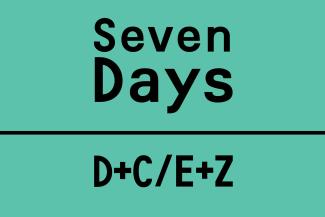In brief
News of the week

Vanuatu needs support
One week after Cyclone Pam hit Vanuatu, the Pacific state of 65 inhabited islands, many people are in desperate need of clean water, medical supplies, tents and hygiene kits. David Tosul, Vanuatu’s minister for agriculture, said rice and other supplies were running out.
The damages are very hard to assess, because the infrastructure of the vast archipelago is poor. At least 24 persons were killed, according to the authorities, but the death toll is likely to rise. Vanuatu’s President Baldwin Lonsdale said that 90 % of the buildings in Port Vila, the capital town of about 40,000 people, had been damaged or destroyed.
When the disaster struck, Lonsdale was attending a UN conference on how to limit the impact of natural disasters in Japan. Speaking of the storm, he told the conference: “It’s a setback for the government and for the people of Vanuatu. After all the development that has taken place, all this development has been wiped out.”
Sources: ABC, Guardian
EU demand contributes to deforestation
European demand for soy, beef, leather and palm oil is driving illegal deforestation in tropical countries, according to Fern, a Brussels-based environmental organisation. In a recently published report, its expert Sam Lawson states that the EU spent about € 6 billion on imports of the four commodities in 2012. He reckons that about a quarter of relevant global exports go to EU member countries.
Link: http://www.fern.org/stolengoods
Sources: Zeit/taz
Increased German ODA
Germany’s Federal Government has decided to increase its spending on official development assistance (ODA). Next year, it will invest € 1.3 billion more than planned previously. In the years up to 2019, ODA is set to rise by € 8.3 billion in total. Gerd Müller, the federal minister for economic cooperation and development, says Germany is prepared to shoulder global responsibility, not least in the context of its G7 presidency this year.
The international lobby and campaigning group ONE estimates Germany’s ODA share in GDP will rise from currently 3.8 % in 2013 to “at least” four percent in the coming years. ONE appreciates the increase, but insists that the Federal Government should present a plan to finally fulfil its pledge of spending 0.7 % of GDP on ODA.
Sources: BMZ, ONE
Germany, France and Italy want to join AIIB
The governments of Germany, France and Italy have announced that they, like their British counterpart, intend to be among the founder members of the Asian Infrastructure Investment Bank (AIIB). The AIIB will be based in Shanghai. Its main promoter is the Chinese government, which has promised to contribute half of the new financial institution’s capital of $ 100 billion.
The US administration has been opposing the project. It expressed criticism of Britain after the Treasury in London stated last week that the UK would apply to join the AIIB. Observers expect the new institution to compete with the Washington-based World Bank, strengthening China’s international influence. In contrast to the US administration, some American experts argue that it makes sense to cooperate with China and influence the new institution from inside. Fred Bergsten of the Peterson Institute for International Economics, a think tank, wrote in the Financial Times that Washington would be well advised to join the AIIB too.
The governments of China and other emerging markets have repeatedly expressed frustration because of western unwillingness to grant them more say on the boards of the World Bank and the International Monetary Fund. They have decided to establish the New Development Bank, which will be dominated by the BRICS nations (Brazil, Russia, India, China and South Africa) and also be based in Shanghai.
Sources: FAZ, FT
China’s growing role as arms exporter
In the past five years, China has been the world’s third largest arms supplier, behind only the USA and Russia. According to SIPRI (the Stockholm International Peace Research Institute), Chinese arms exports increased by 143 % over the previous five-year period (2005 to 2009). The US share of the global market for weapons was 31 % in the past five years, the Russian share 27 % and the Chinese share five percent.
Germany’s export volume was slightly smaller than China’s, but also amounted to about five percent of the global trade, according to SIPRI. German exports decreased by 43 % in the past five-year period. The researchers note, however, that this country received several large arms orders in 2014 from middle eastern countries.
Five of the top ten weapons importers were Asian in the past five years. India accounted for 15 %, China five percent, Pakistan four percent, South Korea three percent and Singapore another three percent. According to the SIPRI data, these five countries bought 30 percent of all arms sold internationally from 2010 to 2014.
Link: http://www.sipri.org/media/pressreleases/2015/at-march-2015
Sources: SIPRI, Deutschlandfunk
These items were compiled by Hans Dembowski on the basis of international media coverage.











